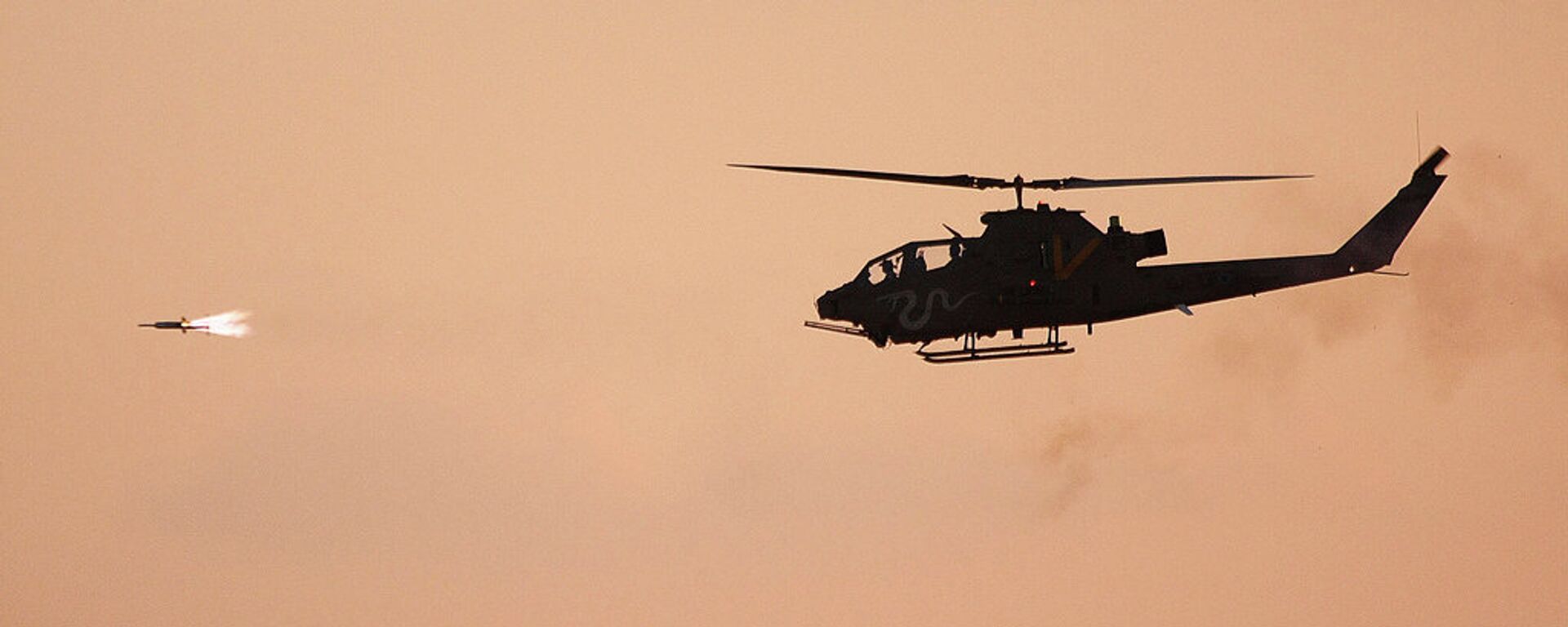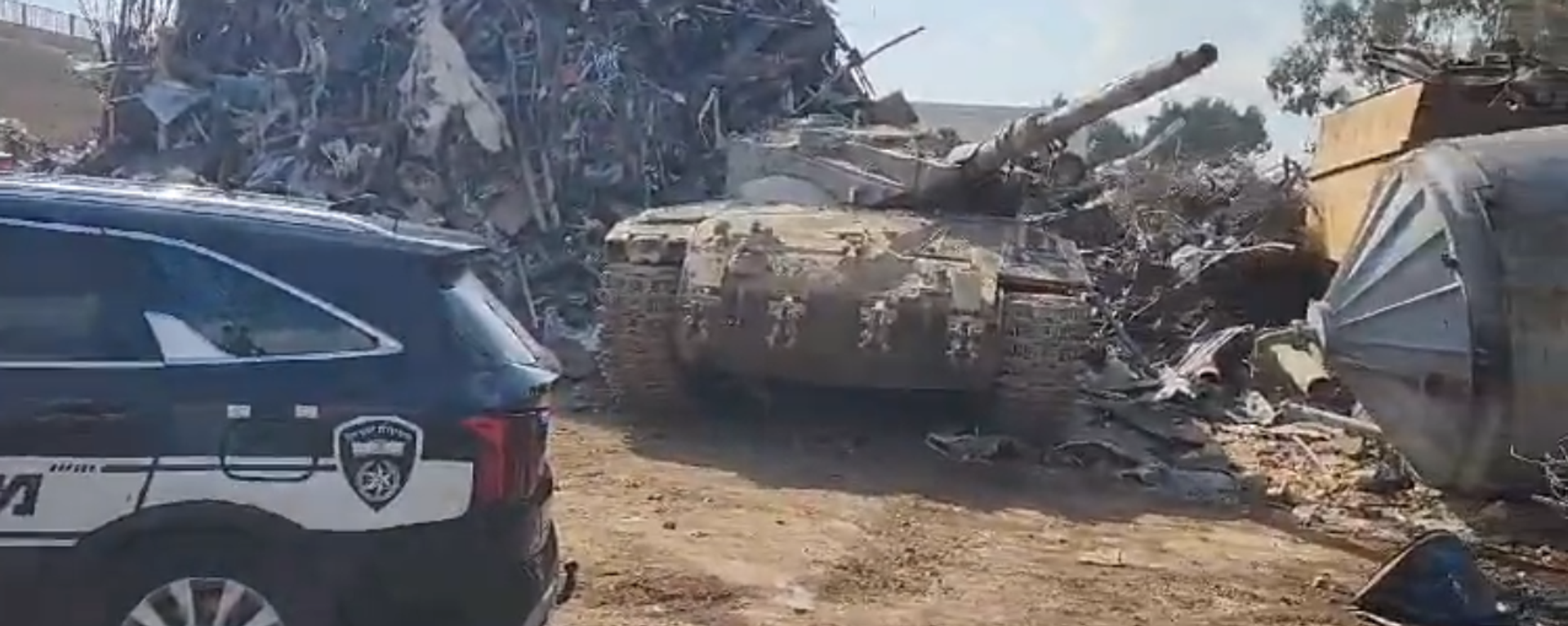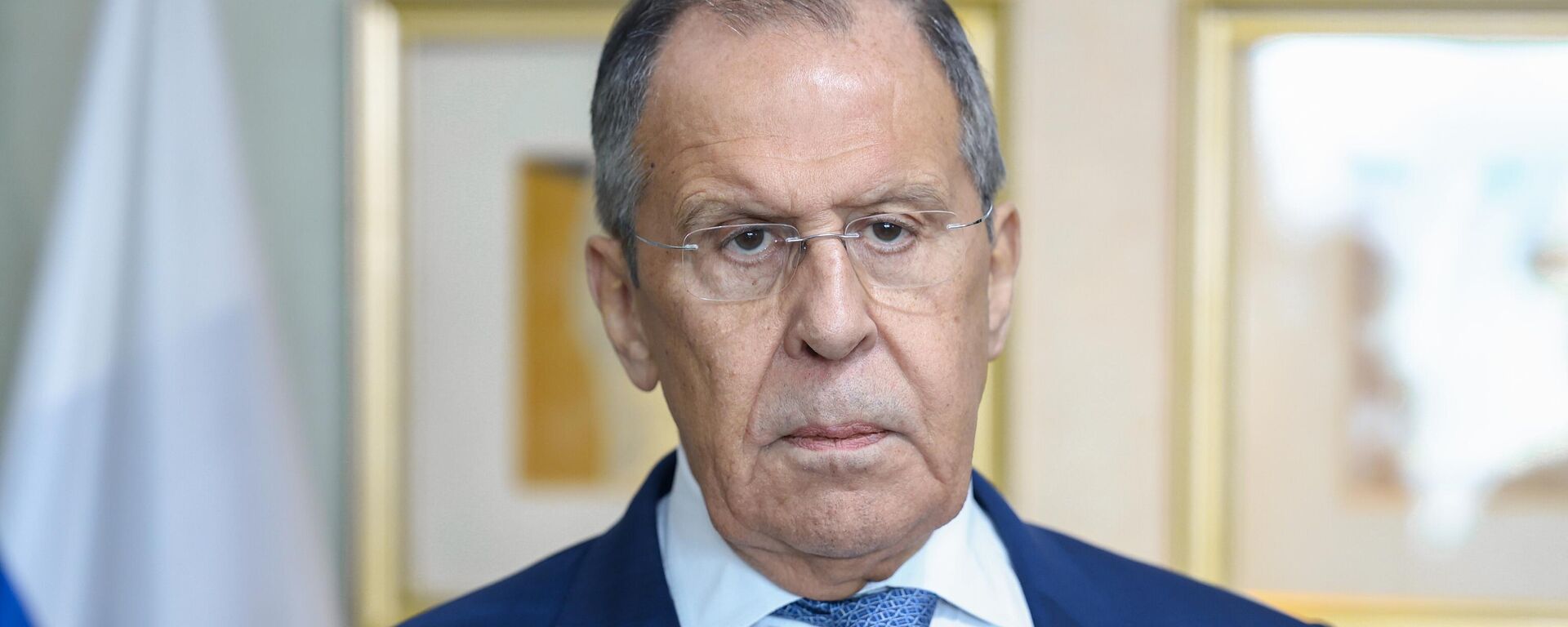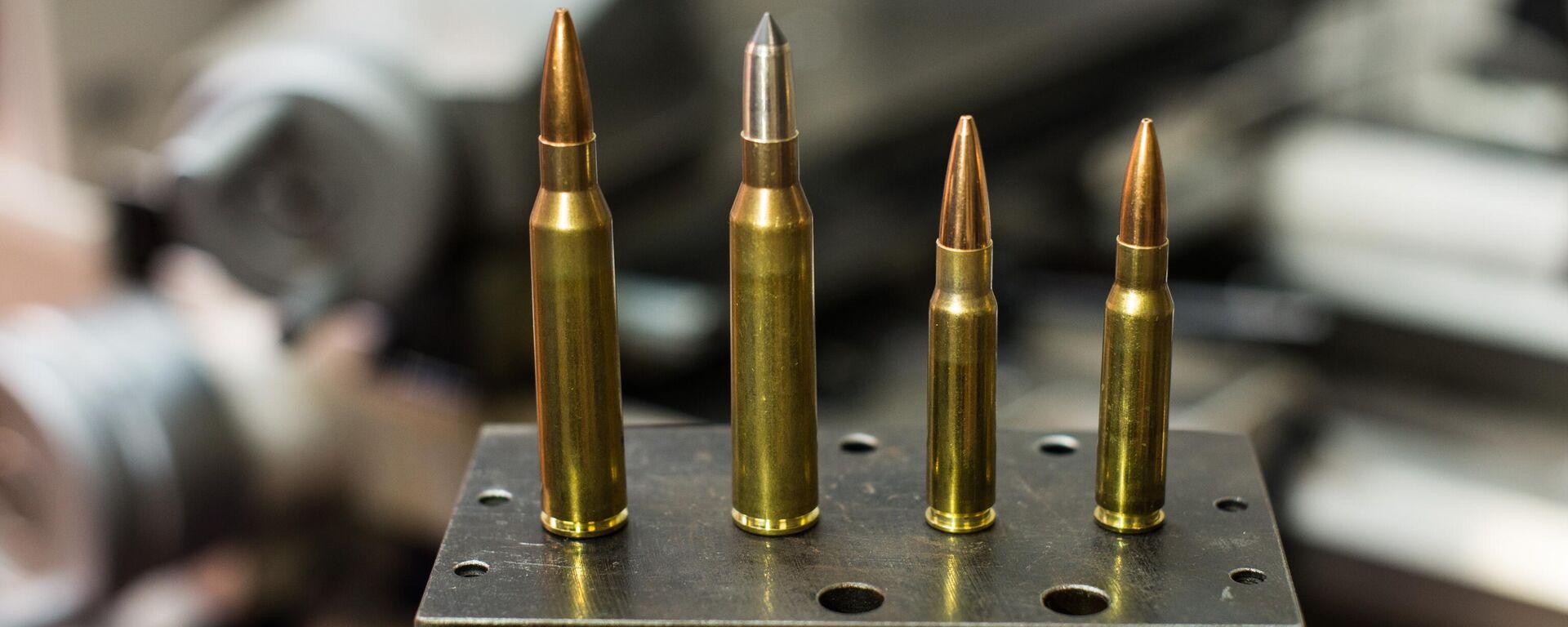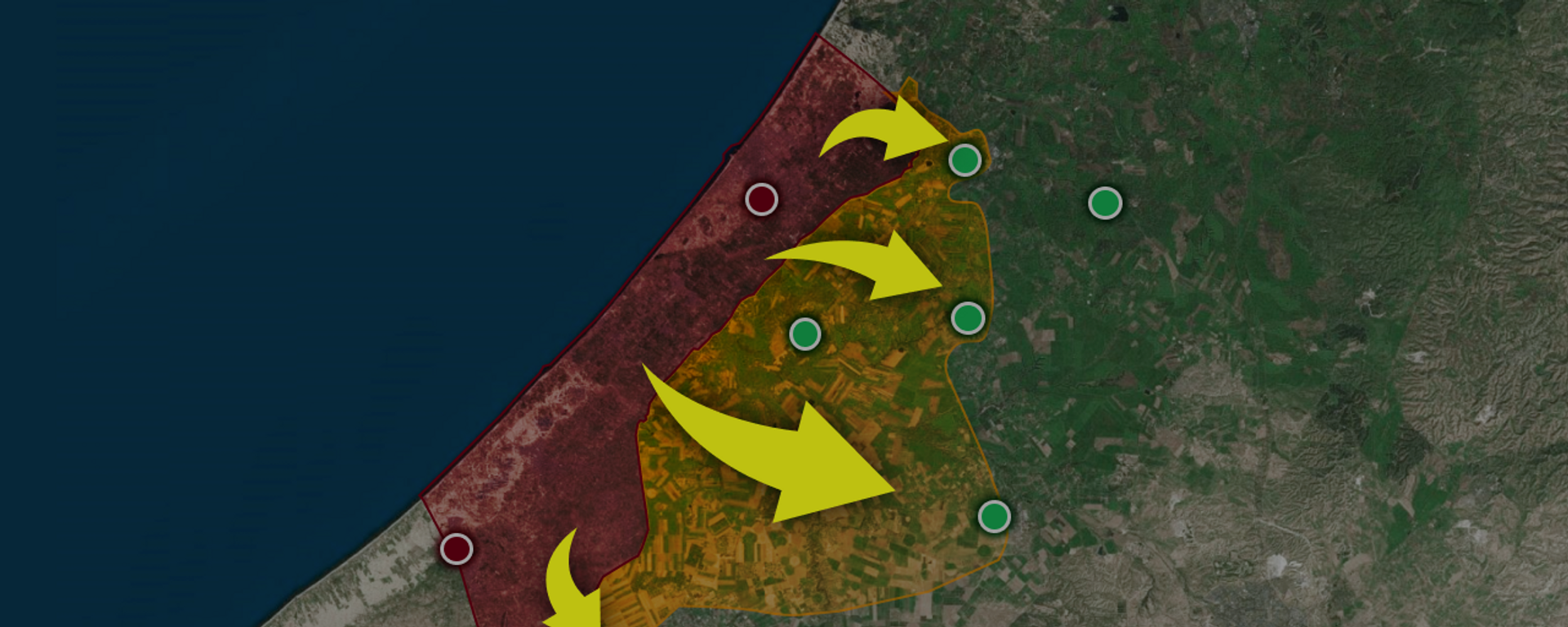What's Behind New Gaza War and How Could It Affect the Mideast Region?
17:48 GMT 08.10.2023 (Updated: 17:56 GMT 08.10.2023)

© AP Photo / Hatem Moussa
Subscribe
Israel has officially entered a state of war on Sunday, as Hamas militants based in the Gaza Strip launched a sudden offensive against the state. What's behind the latest escalation?
Hamas kicked off a surprise attack called Operation Al-Aqsa Flood at about 6:30 am (GMT+3) on October 7, infiltrating Israeli towns, targeting military outposts and firing a barrage of rockets in various parts of the country.
The assault by Hamas, a group designated as a terrorist entity by Israel, caught the Israeli military off guard and manifested the failure of the nation's intelligence services to proactively thwart the massive and seemingly preplanned operation. In response, Tel Aviv started Operation Swords of Iron. According to some estimates, the hostilities have already claimed the lives of 300 Israelis and 232 Palestinians.
"I think we witnessed a clear intelligence failure," Professor Efraim Inbar, President of the Jerusalem Institute for Strategy and Security, told Sputnik. "And probably it will be investigated after the war. And it was a huge surprise for Israel yesterday. And we pay dearly for being surprised."
This is a sophisticated operation by Hamas, well-coordinated, and well performed, according Dr. Imad Salamey, associate professor of political science and international affairs at the Lebanese American University.
"It is highly unlikely that Hamas was able to do this without much aid from outside the borders of Gaza," Salamey told Sputnik. "So this tells you that Mossad was taken by surprise, not expecting Hamas to be capable of doing something like this. So definitely it reflects a major failure on the side of the Americans and the Israelis, an ability to assess the situation on the ground and to forecast such a military, sophisticated operation. So it's a huge, huge setback to both the CIA and to Mossad and the abilities and assessments of what they call terrorist organizations activities in Palestine and elsewhere."
What are the Reasons for New Escalation?
"There are obvious reasons and there are more complicated reasons," said Salamey. "The obvious reason is the fact that the Palestinians have been denied basic human rights and they've been living under miserable humanitarian conditions and pretty much under siege."
"And of that conflict of course, that is the more complex issue behind this reason and behind the timing and behind the sophistication of the operations that Hamas has overtaken. Of course, looking at this operation, it's quite sophisticated. We all know that Hamas alone cannot do this. It doesn't have weapons. Somebody has supplied the weapons to Hamas. Some have supplied information to Hamas (...) the operation was well-coordinated, even orchestrated," the academic continued.
The unfolding havoc coincided with the 50th anniversary of the 1973 Yom Kippur War, also known as the Ramadan War, between the Israelis and a coalition of Arab states.
Last time, Hamas launched rocket attacks on Israeli settlements in May 2021 as Tel-Aviv commemorated its 73rd anniversary of independence. On May 10, Hamas targeted areas near Jerusalem, Ashkelon and Tel Aviv. The major escalation was preceded by clashes between Israeli forces and Palestinian Arabs at Jerusalem’s Al-Aqsa mosque compound.
Still, the origins of the confrontation between Hamas and Tel Aviv go deep in history. Hamas was founded in 1987. Since then, the group regularly participated in clashes between various Palestinian organizations and the Israeli state as part of broader geopolitical disputes and rivalry between Israel and its Arab neighbors going back to 1948, when Israel was established.
By 2005, Israel dismantled Jewish settlements in the Gaza Strip and completely withdrew from the region, which came under the control of Hamas (that had turned into a political force by the time) in 2007, after the group ousted the Fatah Party (formerly the Palestinian National Liberation Movement) from Gaza.
Two years later, Israel imposed the blockade of Gaza. Per Tel Aviv, the 16-year-long blockade is aimed at halting the flow of arms into the region; for their part, Palestinians denounce the move as "collective punishment" which exacerbates the already dire situation.
In 2017, Hamas rebranded itself as an Islamic national liberation movement with the aim of liberating Palestine – the geographical area covering the State of Israel, the West Bank and the Gaza Strip. Hamas does not recognize Israel and proclaims that resistance to "the occupation with all means and methods is a legitimate right guaranteed by divine laws and by international norms and laws."
Besides strife with Fatah, Hamas was repeatedly at odds with the Palestinian Authority (PA) leadership as the latter appeared not to support Hamas' radical methods as well as the group's unwillingness to recognize Israel's right to exist. This time, Palestinian Authority President Mahmoud Abbas responded to Hamas' operation by expressing his solidarity with Palestinians and blamed Israel for a stalled peace process.
"We have repeatedly warned against the consequences of blocking the political horizon and failing to enable the Palestinian people to exercise their legitimate right to self-determination," the Palestinian Authority Foreign Ministry tweeted.
World Players Call for Halting Hostilities
In general, the Palestinian cause has long been supported by the Muslim world. Commenting on Hamas' surprise attack, Iran's Foreign Ministry called it "the spontaneous movement of resistance groups and Palestine's oppressed people in defense of their inalienable rights" and said it stands by Palestinians.
For its part, the Turkish Foreign Ministry said it is "deeply concerned about the violence and tension occurred [sic] in Israel and Palestine today," calling for "the restoration of calm in the region as soon as possible" and strongly condemning the loss of civilian lives.
Russia called on the warring parties to cease fire and return to the negotiating table. It is currently in contact with Israel, Palestine, Egypt and other Arab countries to de-escalate the situation.
"We are in touch with everyone," Russian Deputy Foreign Minister Mikhail Bogdanov told Sputnik on Saturday. "We're asking them to stop as soon as possible. There are many victims, destruction and those injured. It is necessary to stop all this as soon as possible and sit down at the negotiating table, especially since the international legal basis is known — there must be a fair, comprehensive solution to the conflict. Our position has not changed."
Is Hamas Using Ukrainian Weapons?
Meanwhile, some have alleged that Hamas is apparently using Soviet-era "Igla" ("Needle") as well as Western MANPADS, triggering concerns that these and other weapons actually originated in Ukraine's infamous black market. Previously, international non-profits warned about Ukraine's long weapons-smuggling record.
"There are many hands in this battle," Salamey said. "And you know, the way weapons are smuggled and where the sources of it are. And, obviously, we've been hearing a lot about corruption among the Ukrainian army and weapons being sold elsewhere. So the way weapons get moved around is pretty much possible."
How Could Hamas' Attack Affect Regional Balance of Power?
"I think the events that we are dealing with have led to some extent eroded Israel's deterrence," Inbar said. "And this is one reason why Israel is going to the wall in order to restore its deterrence, in order to make it clear to all its enemies in the region that it's still a very strong country able to exact a high cost from anybody to fix it."
For his part, Salamey suggested that the attack could have been aimed at disrupting Israeli-Saudi dialogue.
"This comes at a time when Saudi Arabia is normalizing relations with Israel and talking about the Indian-European railways breaking through Saudi Arabia, Jordan and Israel, which give much economic weight to Saudi Arabia and push Saudi Arabia toward greater normalization with Israel away from it," Salamey pointed out.
"Saudi Arabia will watch and see and assess its steps toward normalization toward Israel. So it's a major setback for normalization efforts and for the US plans for the region. And that is. So instead, now, maybe Saudi Arabia will resort back to its rapprochement with Iran through China, and it really favors it, and it's moving in that direction," the Lebanese academic continued.
Inbar does not think Riyadh and other Arab countries would halt dialogue with Israel over the recent escalation:
"The Saudis will not deviate much from the Arab consensus. And basically, neither Saudi Arabia, nor Egypt, nor Jordan, nor the Gulf countries have much love for Hamas ... And they would love to see Israel beat Hamas in a determined way," the Israeli professor said.
Meanwhile, demonstrations in support of Gaza and Palestinian groups were held in several Muslim countries including Turkiye, Yemen, Kuwait, Iran, Bahrain, and others at the weekend.

